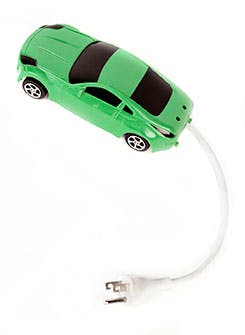Electric cars, not including hybrids, make up less than 1% of the automotive market. Why? Because even the best electric vehicles still have a short range, long recharge time, a dearth of recharging infrastructure and high prices. The typical gasoline automobile has a range of 300 to 400 miles before a refill is needed. A typical electric vehicle has a range of less than 100 miles. Some manufacturers are closing in on 200 miles but at a very high price. This one limitation keeps most people from buying an electric car. Running out of gas, or energy in this case, is a giant pain in the rear, inconvenient and usually expensive. While running out of fuel still happens, such an event is much less of a problem with a gasoline vehicle. For short commutes an all electric may be OK but for the typical user, more range is needed for everyday utility and comfort level.
Recharge time is also an issue. Most electric vehicle manufacturers assume you will recharge overnight. That is the best way, of course, since it takes 3 to 12 hours for a full recharge. But while you are on the road, even if you can find a charging station nearby, who wants to wait 3 or 4 hours for the recharge? With a gasoline car you can refill in ten minutes or so and be on your way.
But that’s not all. What if you need to charge while on the road? There are a few recharge stations in some cities but not enough. The few that I have seen are usually in use and in the middle of a 4 hour recharge. How inconvenient. To be practical, electrical vehicles need a system of recharge stations. In fact, a whole infrastructure is needed if electric vehicles are really going to replace gasoline vehicles in a major way.
Finally, cost is an issue. Electric cars are still expensive. Even the cheapest are in the $30K to $40K range and over $100K for a Tesla. Low volume and high battery costs are the reason. And don’t forget the couple of thousand dollars you will need to spend for your home 240 V recharging station. And the increase in your electric bill. One announced hope is that the prices of the Tesla cars may decrease if Tesla is successful in building the massive battery plant it is said to be contemplating. But that is years away.
What’s the solution? A better battery. One that can hold more charge per density and cost less. We have all been waiting for that battery for years. The energy of a Sears Diehard in an AA size at AA prices would be nice. Battery chemistry just does not change as fast as other technologies. Progress is being made but it is at a geological pace instead of the Moore’s law pace of semiconductors we are used to. Fuel cells have not made much progress either and as for the potential of a hydrogen-based refueling infrastructure, forget that. Maybe one of these days we will see solar panels on cars for recharging. Or some such breakthrough.
In the meantime, I believe electric cars will remain a niche for those who can live with the disadvantages and want to be “green”. For the rest of you, stay comfortable with your gasoline cars. If you want an electric, a hybrid is the way to go.
About the Author

Lou Frenzel Blog
Communications Technology
Click here to find more of Lou's articles on Electronic Design.

